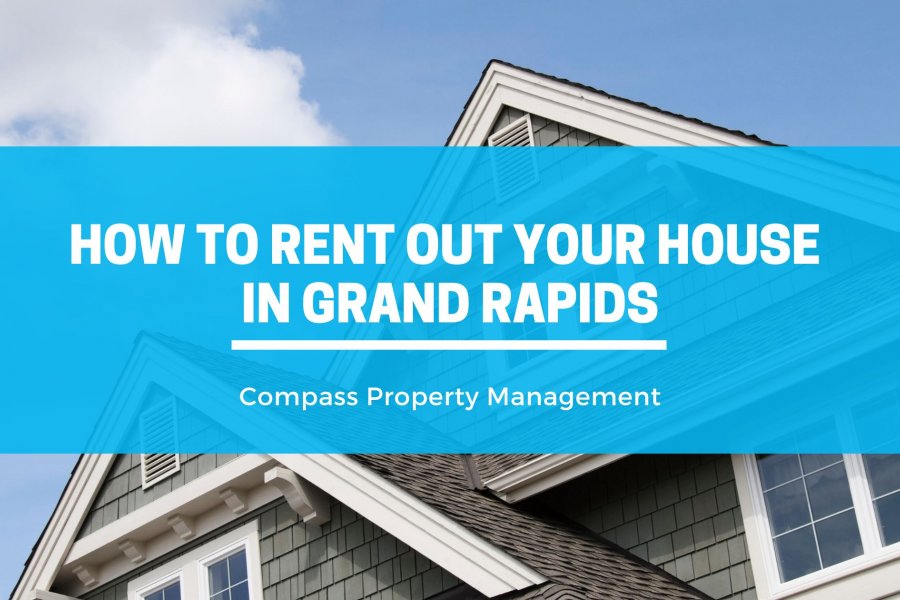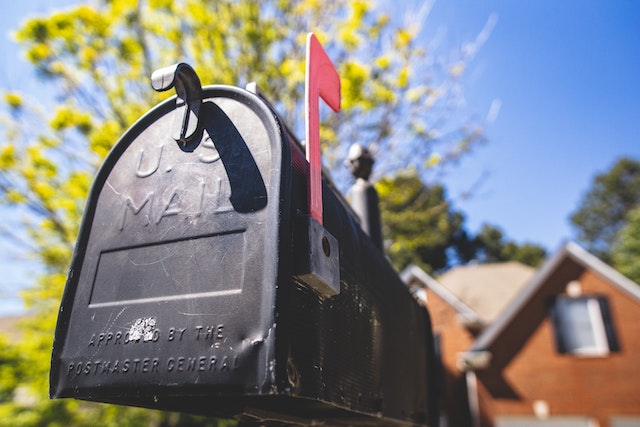
Renting out your house in Grand Rapids can provide a steady stream of passive income, helping you cover mortgage payments, taxes, and other expenses associated with property ownership. Whether you're turning your home into a rental property or buying your first real estate investment, there's a lot to consider.
However, as a new DIY landlord, a lack of knowledge about local regulations and laws can lead to unintentional legal violations, resulting in fines, penalties, or legal disputes with residents.
In this article, we are here to educate you about the fundamental aspects of renting out your house in Grand Rapids, Michigan. Let’s get into it!
8 Tips for Renting Out Your House in Grand Rapids
Renting out a house in Grand Rapids can be a great way to generate income, but it's important to carefully consider several factors before taking this step. Keep reading to learn some of our tips for rental property owners below.
1. Understand Local Regulations and Landlord-Tenant Laws
Each city and jurisdiction has its own set of regulations and laws governing rentals. Failing to comply with these regulations can result in fines, penalties, and legal disputes. Understanding and adhering to landlord-tenant laws ensures that your rental home operates within the legal framework.
Local landlord-tenant laws often dictates resident rights and protections. These laws can cover areas such as security deposits, eviction procedures, resident privacy, and fair housing practices. By being aware of landlord-tenant law, you can avoid inadvertently violating your residents' rights and facing legal consequences. You can get in touch with your local housing authority, a lawyer, or property manager to learn more about your legal responsibilities.

2. Prepare Your Property for Residents
A well-prepared property creates a positive first impression for potential residents. A clean, well-maintained property is more likely to attract reliable and responsible long-term residents who will treat the house with care. A property that has been properly prepared and is in good condition can also rent for a higher price.
Repairs, renovations and improvements can make your rental more appealing to residents, allowing you to charge competitive rent rates. Local laws require rental properties to meet certain standards of habitability and safety. By preparing your rental property, you ensure that it complies with these regulations and is offering residents a safe living space.
3. Set the Cost of Rent
Setting the right rent price ensures that you're offering a fair deal to both yourself as the landlord and your potential residents. It reflects the property's value and amenities relative to the local rental market. Researching the local market helps you determine how your property's rent compares to similar properties in the area. This ensures that your rental rate remains competitive and attractive to potential residents.
Rent that is aligned with market rates is more likely to attract a larger pool of interested residents. An appropriately priced house can generate more inquiries and applications. The rent you charge should also align with your investment goals. It's important to consider your costs (such as monthly mortgage payments, taxes, rental home insurance, landlord insurance, and maintenance), desired return on investment, and the local housing market when setting the rent price.
Once you've prepared the space for new residents and set the cost of monthly rent, you can put up a rental listing and start working on finding your new renters.

4. Resident Screening
Thorough screening can help reduce the risk of potential problems, such as damage, unpaid rent, or lease violations. Screening potential renters means you need to uphold fair housing laws. The Fair Housing Act requires that you treat all applicants equally and without discrimination based on factors such as race, gender, religion, or family status. The Fair Credit Reporting Act requires that you get permission from residents before running a credit check.
Proper screening can lead to longer lease terms as you're more likely to select residents who are committed to staying in the property for an extended period. It is an essential practice that helps you find residents who are a good fit for your rental, minimize risks, pay rent on time, maintain a positive a landlord-resident relationship, and ensure legal compliance. It's an investment that can lead to a smoother and more successful rental experience for everyone involved.
5. Prepare Your Lease Agreements
Creating a solid lease agreement before renting your property in Grand Rapids is very important. A well-drafted lease agreement clearly outlines the rights and responsibilities of both the landlord and the resident. This reduces the chances of misunderstandings or disputes throughout the tenancy.
The lease or rental agreement specifies the rent amount, due date, and payment methods. The lease can also outline requirements for renters insurance, info on maintenance responsibilities, and other important things like how much the security deposit will be. This ensures that both parties are on the same page regarding financial obligations. Creating a comprehensive and well-thought-out lease agreement helps establish a clear and respectful relationship between the landlord and the resident.
It not only protects both parties legally but also sets the foundation for a successful and harmonious rental experience.

6. Familiarize Yourself with Landlord Responsibilities
Being a landlord involves a lot more than being able to collect rent payments every month. Landlords have a legal duty to provide safe and habitable living conditions for residents. Knowing your responsibilities ensures that the property meets health and safety standards and provides a secure property.
Being aware of your obligations as a landlord helps prevent potential legal issues or disputes with residents. You can proactively address concerns and maintain a positive relationship. Meeting your responsibilities contributes to resident satisfaction. Residents are more likely to renew their leases and treat the property with respect if their living conditions are comfortable and well-maintained.
7. Read About Tax Implications
Rental property owners can often deduct various expenses related to managing properties, such as mortgage payment interest, property taxes, insurance, repairs, maintenance, and depreciation. Understanding these deductions and tax benefits can help lower your taxable rental income.
Depreciation allows you to deduct a portion of the property's cost over time, which can significantly reduce your taxable income. However, there are rules and limitations associated with depreciation that you should understand.
By understanding tax breaks, you can make informed decisions about your investment property, optimize your tax deductions, and ensure compliance with tax laws. Proper tax management is crucial for maximizing your rental income and avoiding unnecessary financial setbacks.

8. Have an Exit Strategy
Coming up with an exit strategy before renting out your house in Grand Rapids, MI, is a prudent step. It helps you think ahead and plan for the long term. It allows you to set clear goals and objectives for your property investment.
Market conditions can change over time. Having an exit strategy enables you to assess the real estate market and make informed decisions based on prevailing economic and market trends. With an exit strategy, you can decide on an optimal timing for selling the property or making other changes. This helps you maximize returns and minimize potential losses.
Bottom Line
Remember that while renting out a property can be a lucrative endeavor, it also comes with responsibilities and potential challenges. Taking the time to thoroughly research and plan can help you navigate the process more successfully. If you're an aspiring real estate investor hoping to expand your portfolio and take on multiple rental properties, those responsibilities and challenges multiply, which is why hiring a property manager can be invaluable.
For expert advice, you should work with a property management company in your area. The professionals at Compass Property Management can help you navigate every aspect of a rental business. When you work with us, you’ll always have a knowledgable real estate partner by your side. Contact us today to speak with a property manager and learn more about our services!
